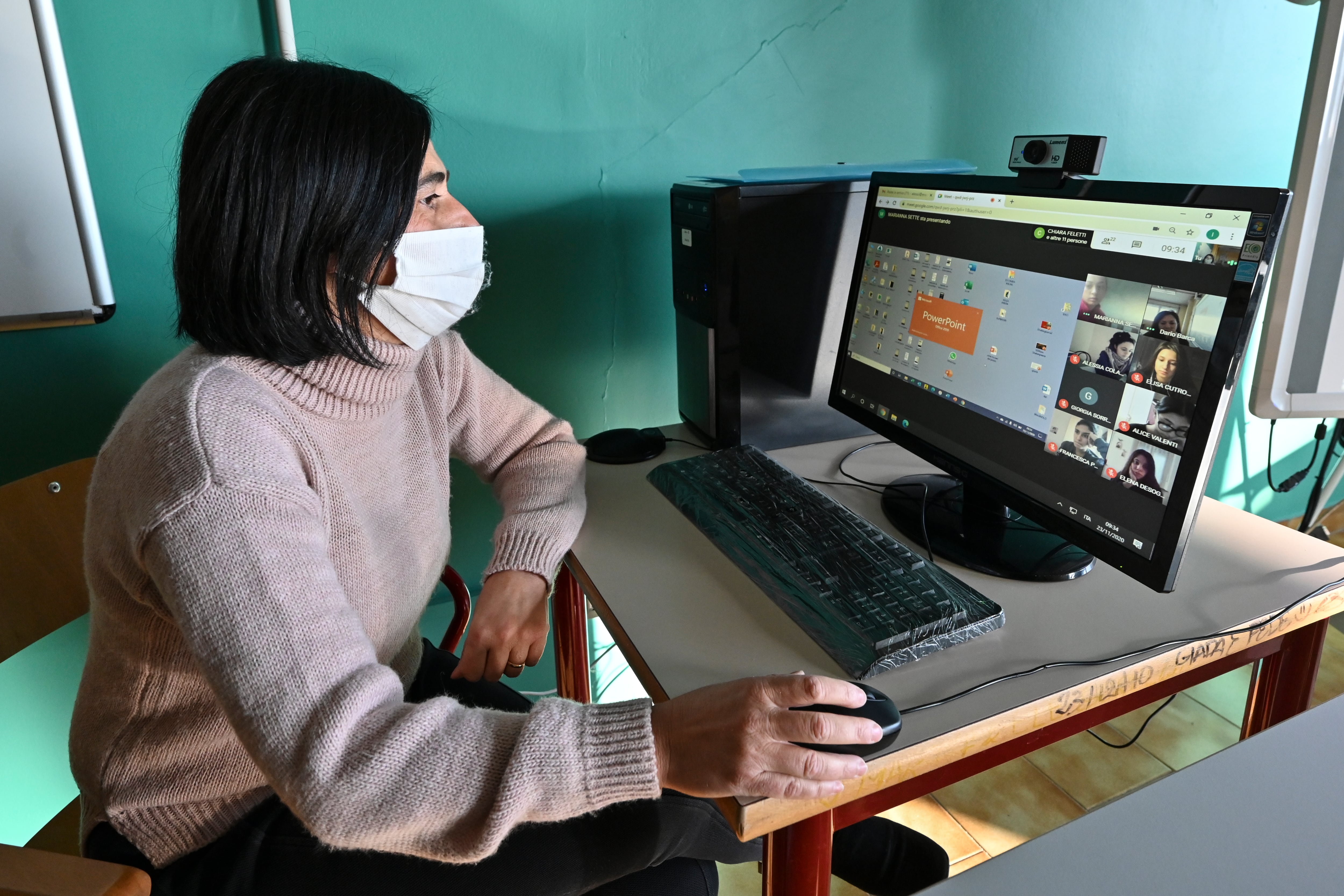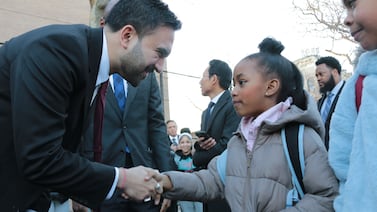School buildings are closed and some students are having a hard time attending online classes — yet Newark teachers are still on the hook for improving student test scores.
Despite the disruptions in student learning caused by the pandemic, the Newark school district will continue to rate teachers this school year based partly on how well their students perform on standardized tests. Now, some educators who already were wary of test-based accountability are raising new concerns about attaching high stakes to tests during remote learning.
Some question the reliability of online tests that students took from home this fall, while others object to setting academic goals based on typical student progress under normal conditions. Still others oppose tying teacher ratings to student scores at all when the usual means of teaching and learning have been thoroughly upended.
“So much has happened and our world has changed,” said Elisabeth Yucis, an official in the New Jersey Education Association, the state’s largest teachers union. “Using an old yardstick to measure a new world I’m not sure is going to get us anywhere.”
The Newark Teachers Union, which is not affiliated with the state union, recently filed a grievance claiming the district violated contract terms related to teacher evaluations, union officials said. An arbitration hearing was held Monday.
One source of tension is the district’s decision to continue factoring test scores into teacher ratings this year, said Newark Teachers Union President John Abeigon.
“There is zero professional dialogue or professional courtesy when it comes to discussions of that nature,” he said.
District spokeswoman Nancy Deering did not respond to questions about the union’s grievance or the district’s teacher evaluation policy.
How to evaluate teachers has long been one of the most contentious questions in education.
Many educators oppose factoring test scores into their annual ratings, which can determine whether teachers earn tenure and keep their jobs. Critics contend that tests cannot fully measure student learning nor isolate teachers’ impact.
Now, the pandemic has thrown a wrench into states’ evaluation systems, raising the possibility of fresh controversies.
In most states, classroom observations are the biggest factor in teachers’ ratings. (In New Jersey, they now account for 85% of teachers’ annual rating.) Some districts, including Newark, have started conducting virtual observations this fall while classrooms remain closed.
Test scores have typically been a smaller but more divisive component of most states’ teacher ratings. The pandemic complicated matters because students did not take state tests this spring and may not take them in 2021.
As a result, of the 21 states that typically factor test scores into teacher ratings and have updated their policies, nine dropped that component this school year, according to a database compiled by the National Council on Teacher Quality. Another 11 kept some measure of student academic growth but made adjustments.
Included in that group is New Jersey, which scrapped one portion of its teacher evaluation system that relied on test scores but kept another portion called “student growth objectives.” Each teacher must set two of those goals, which will count for a combined 15% of his or her rating.
Under state law, teachers must develop the student learning goals “in consultation with” their supervisors. The goals can be based on teacher-made assessments, such as essays or projects, or districtwide tests.
In Newark, the district told teachers that one of their goals must be based on the MAP Growth test, a computer-based assessment created by the nonprofit NWEA that is taken by millions of students nationwide.
“Ultimately, every teacher that gets a rating has to have their students take this test,” Superintendent Roger León said during an online forum in October.
Union leaders have raised two major concerns about basing goals on the MAP test, which Newark students took this fall and will take again this winter and spring.
First, they say students might have received help or used reference materials when they took the online test from home, inflating their baseline scores. Second, district guidance suggests that teachers use NWEA’s projections of students’ likely end-of-year scores to set their goals. The projections are based on a nationally representative sample of students who took the test in prior years — before the pandemic. Union leaders say it’s unreasonable to expect students to make the typical amount of growth when their learning has been so disrupted.
“Setting teachers up for failure in evaluations is one of the key reasons that so many teachers in the district don’t trust administrators,” Christopher Canik, a high school math teacher and union vice president, told the school board last month.
NWEA itself has urged caution about using its tests, which are meant to track student progress, to evaluate teachers.
In a 2013 blog post, an NWEA researcher wrote that rating teachers based on whether students meet their growth projections is “not the intended use of this statistic” and may put some teachers “at an unfair disadvantage” because the projections cannot account for individual students’ circumstances. In a presentation this July, the same researcher, Nate Jensen, noted that NWEA’s projections are based on “normal” student progress, but “this coming fall will not be normal.”
In response to concerns about the reliability of this fall’s test scores, NWEA spokesperson Simona Beattie said score trends were consistent for in-person and remote tests taken by students in grades 3-8. She added that the organization recommends using multiple measures to evaluate teachers.
“This has not been a typical year, and so typical approaches to teacher evaluations based on test scores are not enough to judge how teachers are addressing learning during the pandemic,” she said in a statement to Chalkbeat.
To be sure, New Jersey’s teacher evaluation system does rely on multiple metrics and gives much more weight to classroom observations than assessments. Even Abeigon, the Newark Teachers Union president, said the portion of teacher evaluations based on student progress is “not a major concern” because of its limited impact on teachers’ overall ratings.
Even during the pandemic, teachers should still be expected to help students advance academically, said Shannon Holston, director of teacher policy at the National Council on Teacher Quality, which advocates for the use of test scores as one component of teacher evaluations. But she added that the student growth goals used to rate teachers must be reasonable.
“Teachers should be accountable for that,” she said. “On the other hand, this is a very difficult time for a lot of people and this is not a typical school year.”






